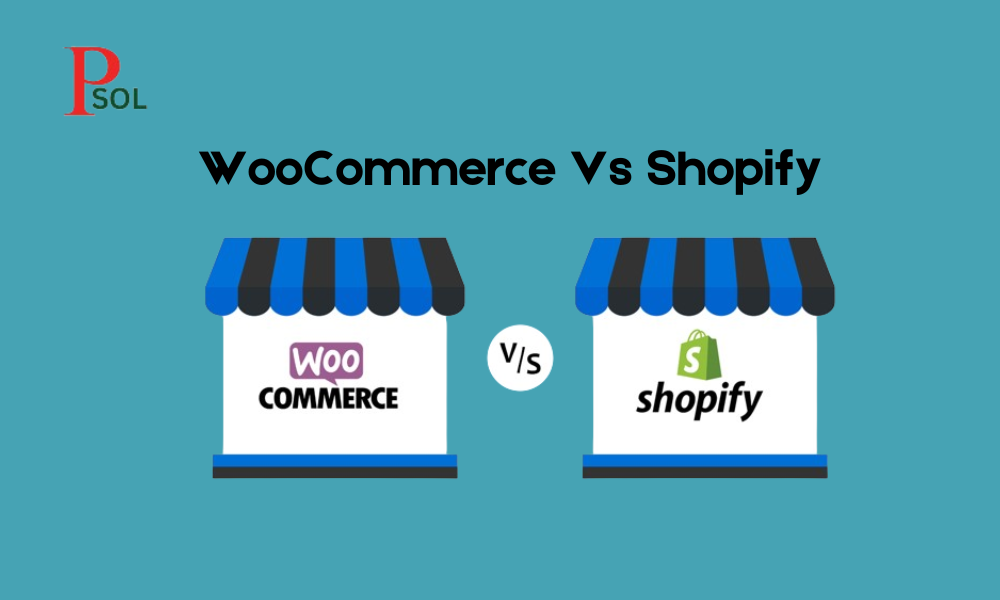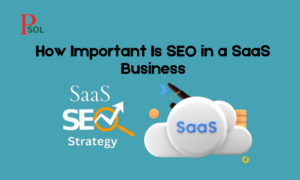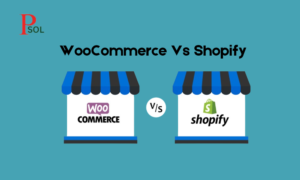Ecommerce is very popular and choosing right platform for building your ecommerce store is very important Ecommerce, the alluring world of online shopping, had become the hottest trend. Everyone from small business owners to large corporations were taking advantage of the digital marketplace, and for good reason. The convenience, accessibility, and potential for profit had everyone jumping on board.
What is Ecommerce?
In the ever-evolving world of technology and commerce, ecommerce has emerged as a dominant force, transforming the way businesses and individuals buy and sell goods and services. But what exactly is ecommerce? At its core, ecommerce refers to the buying and selling of goods and services, or the transmission of funds or data, over an electronic network, primarily the internet. These transactions may occur between businesses and consumers, between consumers themselves, or between businesses.
Comparison of Shopify Vs Woocommerce:
The screen was filled with endless tabs and options, as Harriet scrolled through the different features and tools offered by both Shopify and Woocommerce. Each had its own unique layout and design, but which one would be the perfect fit for her ecommerce store?
The two platforms, Shopify and Woocommerce, had their own unique visual aesthetics. Shopify had a clean and modern layout, with bold fonts and minimalist design elements.
On one side of the screen sat Shopify, sleek and modern in design with its clean interface and user-friendly layout. On the other side, Woocommerce appeared more customizable with its endless options for design and layout.
Features of Shopify Platform
Shopify is a popular online store builder that helps you create and manage your own e-commerce website. Here are some key features of Shopify that make it a great choice for businesses of all sizes:
Shopify Easy to Use
User-Friendly Interface: Shopify has a simple and clean interface that makes it easy to set up and manage your online store, even if you have no technical skills.
Shopify Customizable Templates
Design Flexibility: Shopify offers a wide range of templates that you can customize to match your brand. You can change colors, fonts, and layouts to create a unique look for your store.
Mobile Responsiveness Shopify Design
Mobile-Friendly Designs:
All Shopify templates are mobile responsive, meaning your store will look great on any device, from smartphones to tablets to desktops.
Secure and Reliable
SSL Certificates:
Shopify provides SSL certificates for all stores, ensuring that your customers’ data is protected and transactions are secure.
99.99% Uptime:
Shopify guarantees high reliability with minimal downtime, so your store is always available to customers.
Payment Options
Multiple Payment Gateways:
Shopify supports over 100 payment gateways, including PayPal, Stripe, and Shopify Payments, making it easy for customers to pay in their preferred method.
SEO and Marketing Tools
Built-In SEO Features:
Shopify comes with built-in SEO features that help your store rank higher in search engine results. You can edit title tags, meta descriptions, and URLs for better visibility.
Marketing Integrations:
Shopify integrates with various marketing tools like Google Analytics, Facebook Ads, and email marketing services to help you reach more customers.
Inventory Management
Easy Product Management:
Shopify makes it easy to add, edit, and organize products. You can manage inventory, track stock levels, and set up automatic reminders for reordering.
App Store
Extensive App Ecosystem:
The Shopify App Store offers thousands of apps to extend the functionality of your store. You can find apps for marketing, sales, customer service, and more.
Customer Support
24/7 Support:
Shopify provides round-the-clock customer support via chat, email, and phone. You can also access a wealth of resources, including tutorials, guides, and forums.
Multichannel Selling
Sell Everywhere:
With Shopify, you can sell on various platforms, including Facebook, Instagram, Amazon, and eBay, all from one central dashboard.
Analytics and Reporting
Detailed Reports:
Shopify offers comprehensive analytics and reporting tools that help you track sales, customer behavior, and store performance, enabling data-driven decisions.
Scalability
Grows with Your Business:
Shopify can handle businesses of all sizes, from small startups to large enterprises. As your business grows, you can upgrade your plan and add more features.
Using these features, Shopify helps you build a powerful and professional online store that can attract and retain customers, ultimately boosting your sales and growing your business.
Features of WooCommerce Platform
WooCommerce is a flexible and powerful plugin for WordPress that allows you to turn your website into a fully functional online store. Here are some key features of WooCommerce that make it a popular choice for e-commerce:
Woocommerce Easy Integration
Seamless WordPress Integration:
WooCommerce works perfectly with WordPress, making it easy to add e-commerce functionality to your existing site or create a new online store.
Customizable Themes
Design Flexibility:
WooCommerce offers a variety of customizable themes. You can change the look and feel of your store by adjusting colors, fonts, and layouts to match your brand.
Mobile-Friendly
Responsive Design:
WooCommerce themes are mobile-friendly, ensuring your store looks great on smartphones, tablets, and desktops, providing a good user experience on any device.
Secure and Reliable
Security Features:
WooCommerce is built with strong security features to protect your store and customer data. Regular updates help keep your site secure.
Payment Options
Multiple Payment Gateways:
WooCommerce supports many payment gateways, including PayPal, Stripe, and bank transfers, allowing customers to pay in their preferred way.
SEO and Marketing Tools
SEO-Friendly:
WooCommerce is designed with SEO best practices in mind, helping your store rank higher in search engine results. You can easily optimize your product pages for better visibility.
Marketing Integrations:
WooCommerce integrates with various marketing tools like Google Analytics, Mailchimp, and social media platforms, helping you reach and engage with more customers.
Product Management
Easy Product Setup:
Adding and managing products in WooCommerce is simple. You can categorize products, set prices, add images, and manage inventory efficiently.
Extensions and Plugins
Extensive Plugin Library:
WooCommerce has a vast library of plugins and extensions that enhance your store’s functionality. You can find tools for shipping, marketing, accounting, and more.
Customer Support
Community Support:
WooCommerce has a large community of users and developers who provide support through forums, blogs, and tutorials. You can also find official documentation and guides for help.
Multichannel Selling
Sell Everywhere:
WooCommerce allows you to sell on multiple platforms, including Facebook, Instagram, and Amazon. You can manage all your sales channels from one place.
Analytics and Reporting
Detailed Reports:
WooCommerce provides detailed reports and analytics on sales, customer behavior, and store performance. This helps you make informed decisions to grow your business.
Scalability
Grows with Your Business: WooCommerce is highly scalable and can handle stores of all sizes, from small businesses to large enterprises. You can add more features and expand as your business grows.
Using these features, WooCommerce helps you build a versatile and professional online store that can attract customers, streamline operations, and increase sales, ultimately supporting your business growth.




